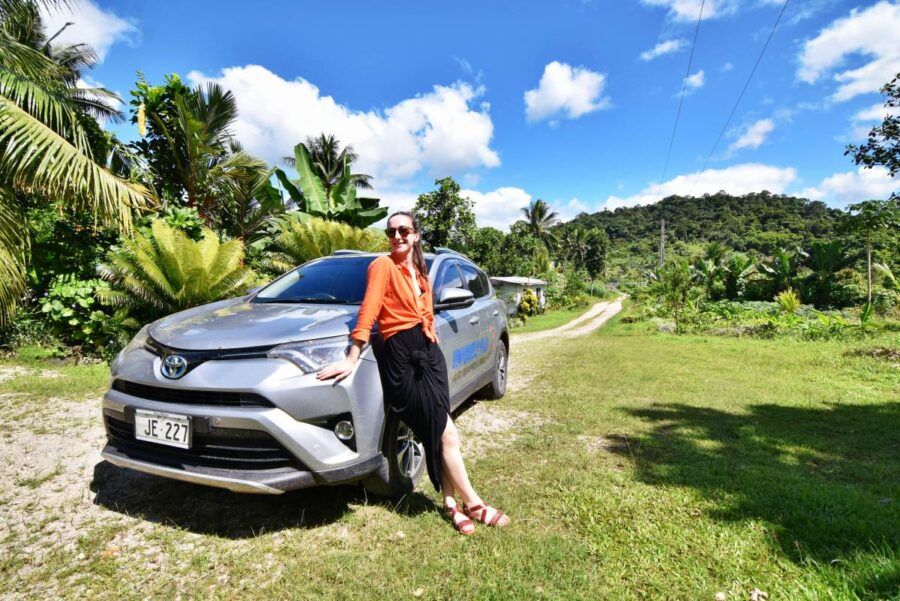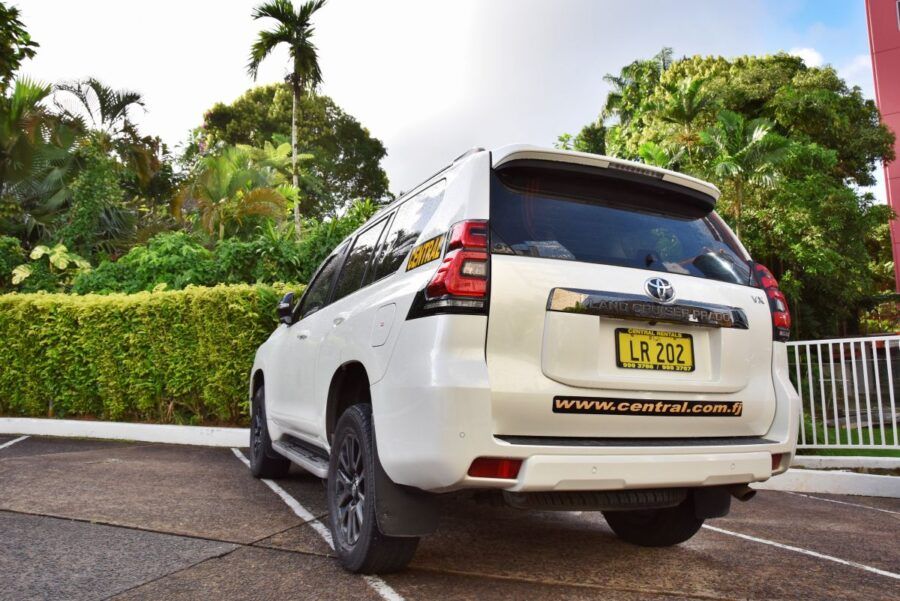How to Get a Cheaper Rental Car in Fiji
Stretch your Fijian Dollars a little further by saving money on your car rental! Saving money on car rental can only be a good thing, so you can spend more on the things that matter, like scuba diving, a luxurious spa treatment or another cocktail. From the season you travel to the type of vehicle you hire, there are a few easy ways to save money on car rental in Fiji. We’ll show you how in the list below…
Before we begin, make sure you also open up The Cost of Renting a Car in Fiji for all the costs to consider when making your car rental budget.
Table of Contents
1. Look Out for Weekly Deals
Road tripping in Fiji for a few days? For car rental companies like Gem Rentals, Uniquely Fiji and PVV Rentals, the longer you rent a car, the lower the daily rate is. Deals such as “Pay for 6, Rent for 7” and daily rate decreases for renting two, five, seven, 14 days, etc., are offered by a few of the car rental companies in Fiji, so keep an eye out!
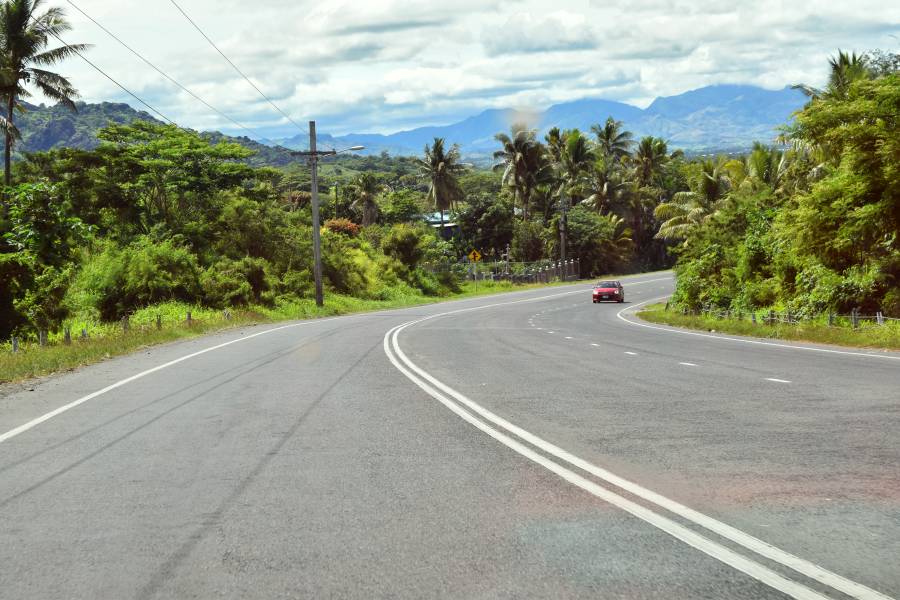 © FijiPocketGuide.com
© FijiPocketGuide.com
2. Choose a Small Car
As long as you’re sticking to the main roads of Fiji, such as the Kings and the Queens Roads, you won’t need to hire anything more than a small car (unless you’re travelling with a tribe). Small cars, such as a Toyota Yaris and Hyundai Getz, are the cheapest type of vehicles to rent in Fiji. And with speed limits being relatively low in Fiji compared to other countries, choosing the most fuel-efficient car isn’t quite as important. However, if you plan to travel on any of the unsealed inland roads, we recommend a high-clearance SUV or 4WD vehicle, which is more expensive. However, make sure your car rental agreement allows you to drive on unsealed roads before you commit to a 4WD. Check out typical vehicle rental prices in How Much Does it Cost to Rent a Car in Fiji?
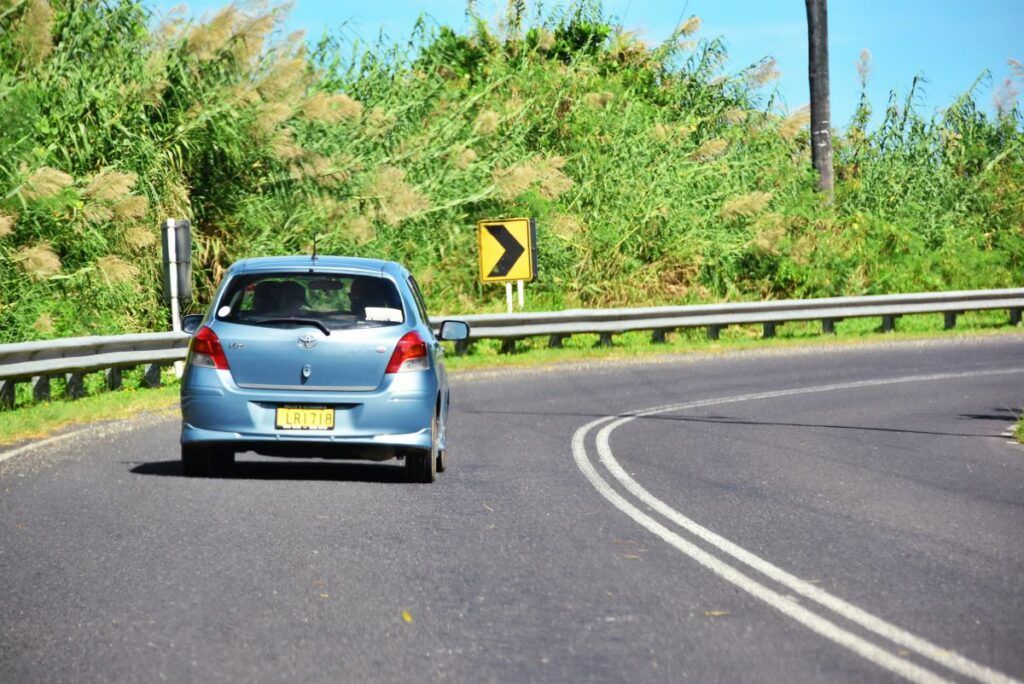 © FijiPocketGuide.com
© FijiPocketGuide.com
3. Compare Fiji’s Car Rental Companies
Many of your well-known international brands have a presence in Fiji, including Budget, Hertz, Avis, Europcar and Thrifty Car Rental. However, we recommend having a look at some of the local companies too, which often have significantly lower rates than international brands. Check out some of your options in The 20 Best Car Rentals in Fiji.
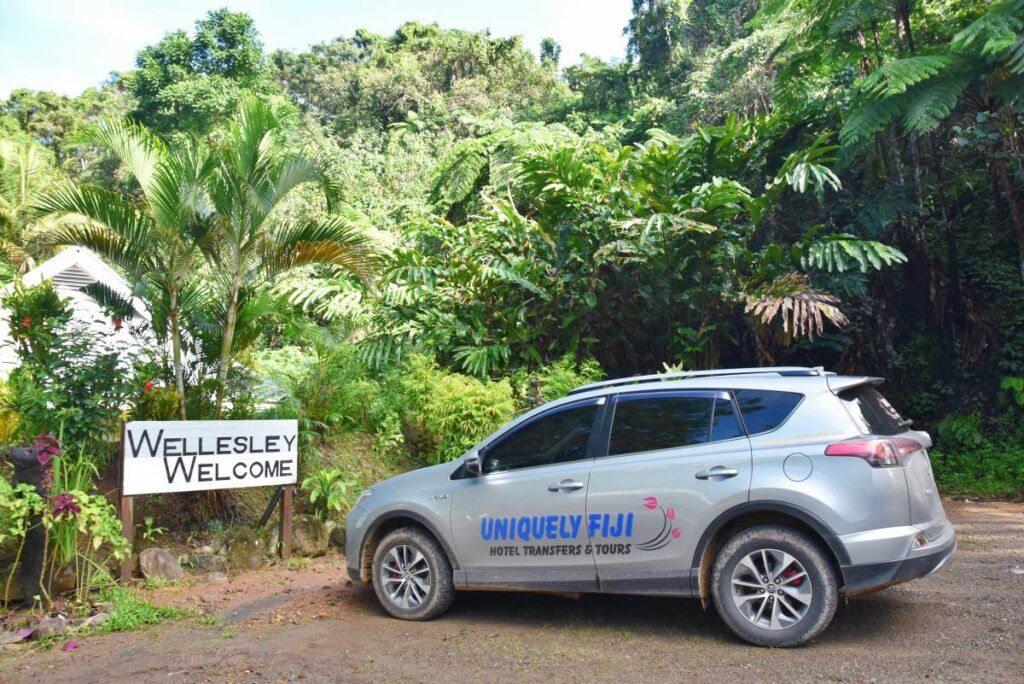 © FijiPocketGuide.com
© FijiPocketGuide.com
4. Look Out for Low Season Deals
To entice travellers during Fiji’s low season, which runs from November to April (excluding Christmas and Easter), some car rental companies in Fiji offer special deals. It’s worth asking what a car rental company’s “low season deal” is when booking a rental for this time. Check out more tips for travelling in the low season in the 10 Reasons to Travel in the Low Season in Fiji.
 © FijiPocketGuide.com
© FijiPocketGuide.com
5. Go Through the Vehicle Inspection Thoroughly
The car inspection on pick-up is not something to rush through. In order to avoid any unexpected fines for damage to the vehicle that you didn’t cause, we recommend going through the vehicle inspection thoroughly. This means walking around the vehicle with the car rental staff and pointing out any visible dents, scratches and other damage you can see – don’t be shy! Make sure that the staff record the damages to the car on their paperwork and take photos of the vehicle yourself if you want to be super thorough.
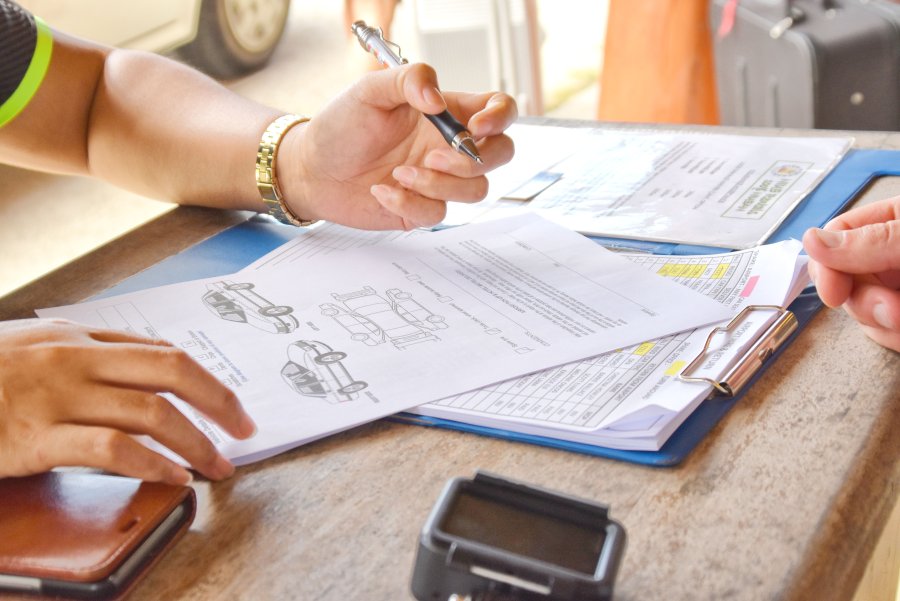 © FijiPocketGuide.com
© FijiPocketGuide.com
6. Look Out for Additional Charges
Not all car rental companies follow the same price structure. Some daily rates will include basic vehicle insurance, while others will have a mandatory additional charge for this insurance. Many car rental companies have a surcharge for drivers under 25 years old. Another example of additional charges is the number of kilometres driven. While most car rental companies have unlimited kilometres, some have a surcharge once you pass 300 km (186 mi), which isn’t even circling around Viti Levu – see The Driving Times & Distances in Fiji. Make sure to include these additional charges in your daily rate comparisons.
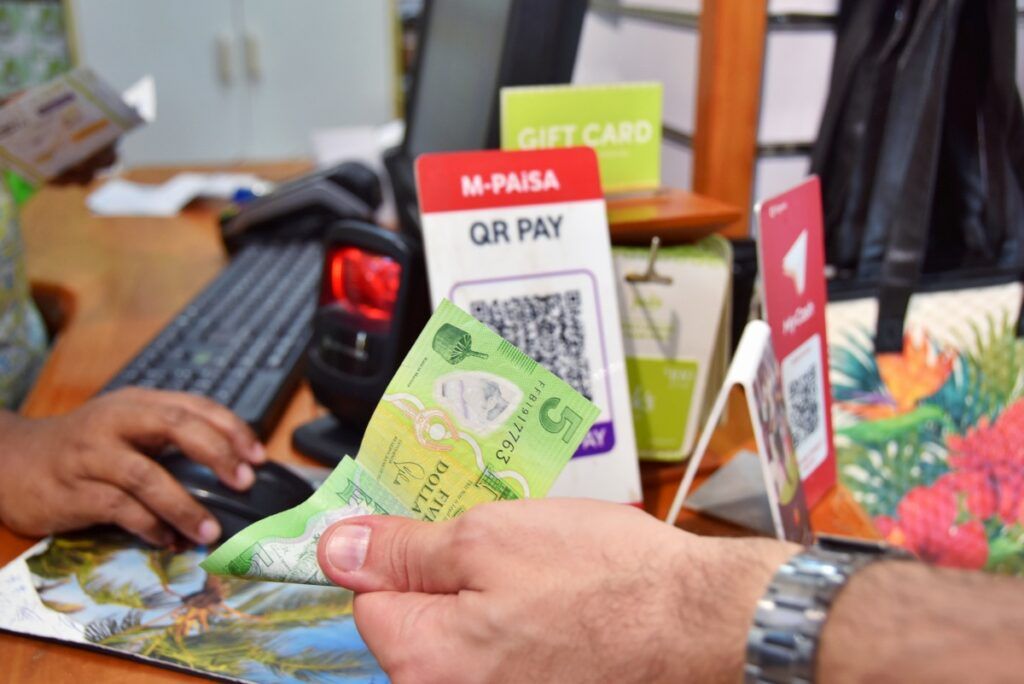 © FijiPocketGuide.com
© FijiPocketGuide.com
7. Take the Car Back with a Full Tank of Fuel
For any seasoned car hirer, this tip is quite obvious, but for anyone hiring for the first time, it’s worth mentioning that returning your vehicle with a full tank of fuel will be much cheaper than returning it partially empty. Car rental companies almost always charge a significant service fee on top of the fuel used to top up the car.
 © FijiPocketGuide.com
© FijiPocketGuide.com
8. Travel with Friends
Share the cost of hiring a vehicle in Fiji by travelling with friends! It’s simple: the more people travelling, the more the cost is shared. As an extra tip, choose a company that allows multiple drivers for free!
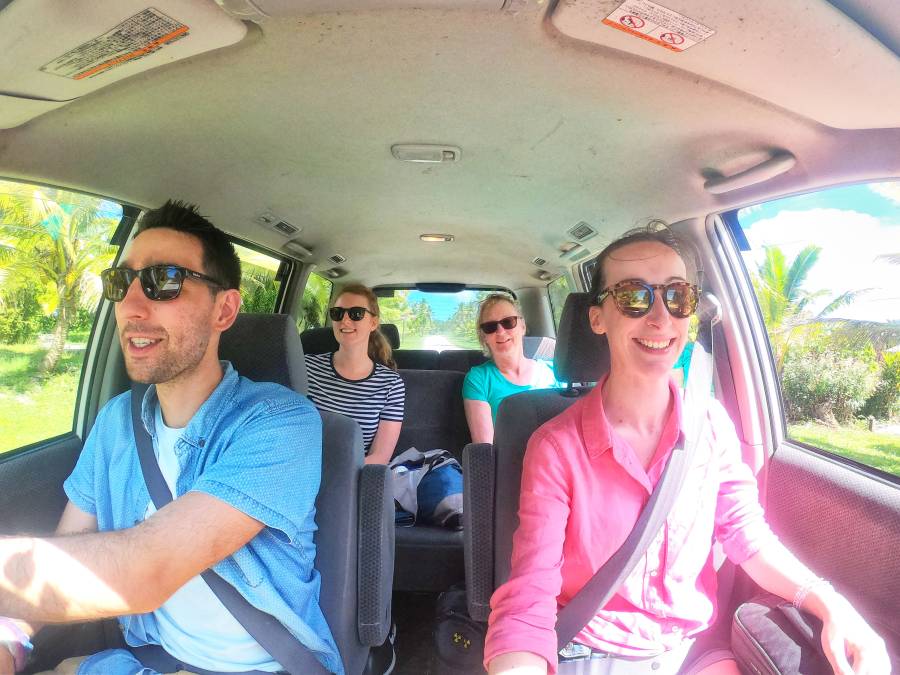 © FijiPocketGuide.com
© FijiPocketGuide.com
9. Don’t Pay with a Credit Card
The universal rule of hiring a vehicle is to have a credit card available to pre-authorise if you damage the car or incur any extra fees. However, some locally run car rentals in Fiji allow you to pay a bond by cash instead, which is refundable upon return of the vehicle. In fact, paying by credit card (or any Visa/MasterCard) is likely to incur an extra fee, which is usually 2-5% of the total payment. If you can avoid it, pay with cash instead of a credit card to save on the cost of car rental in Fiji.
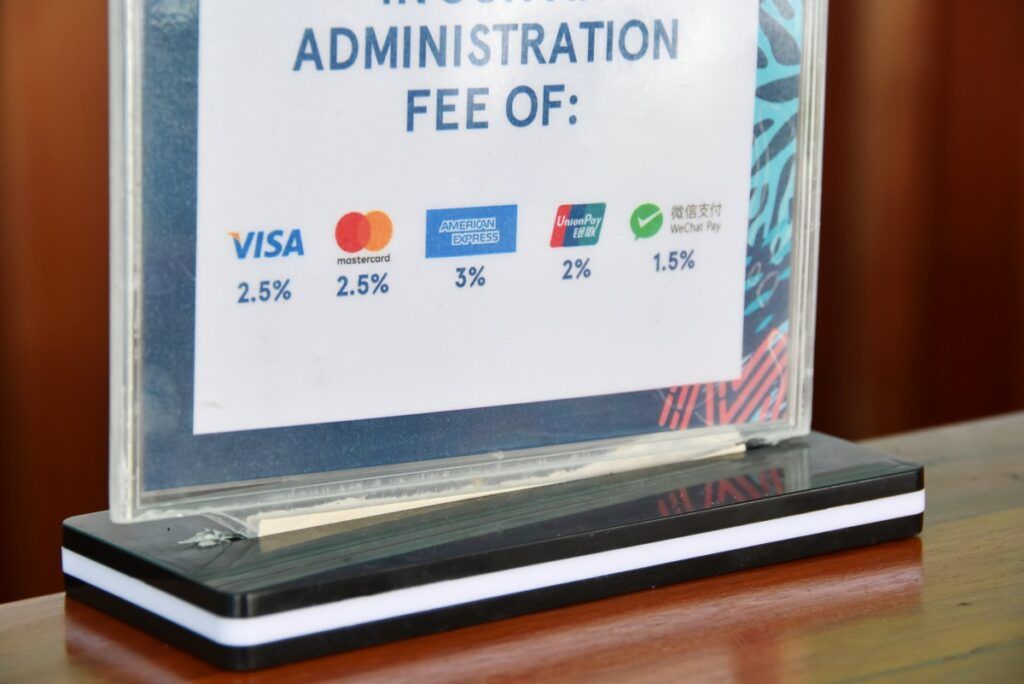 © FijiPocketGuide.com
© FijiPocketGuide.com
10. Know the Road Rules in Fiji
Despite basic insurance being a standard of car rentals in Fiji, this doesn’t actually cover much. The hirer is still often liable for essentially all damages to the vehicle in the event of an accident, so we recommend being fully aware of the road rules in Fiji to reduce the risk of an accident. Check out 10 Safety Tips for Driving in Fiji, as well as How to Drive in Fiji + 10 Essential Road Rules for tips.
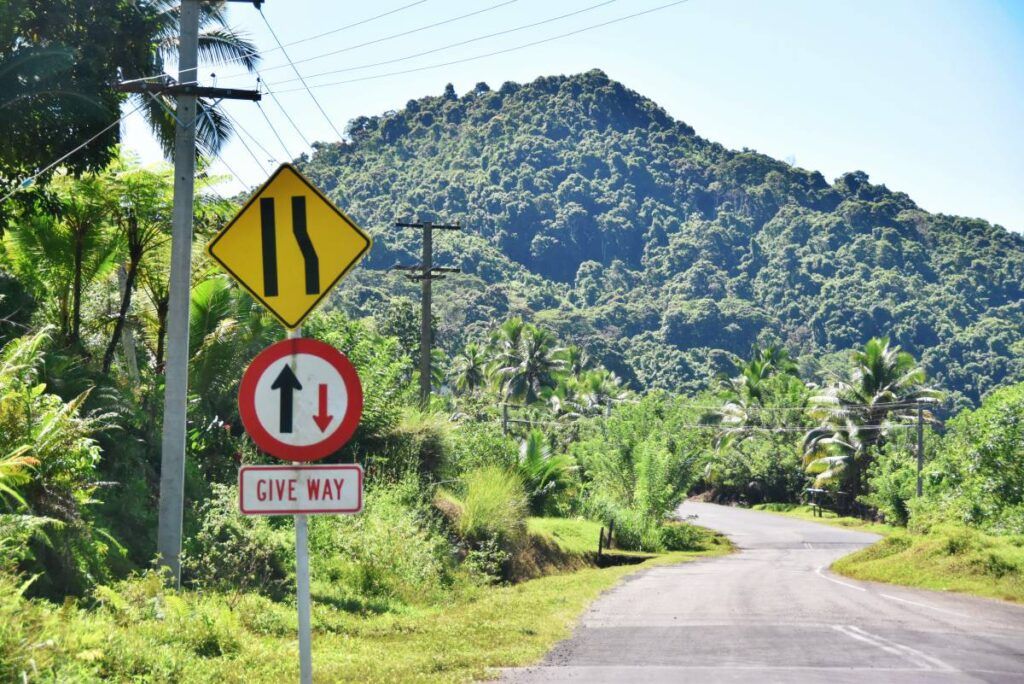 © FijiPocketGuide.com
© FijiPocketGuide.comMore Ways to Save Money on Car Rental in Fiji
That’s it from the ways to save money on car rental in Fiji. For more tips, take a look at the following:
- The Driving Times in Fiji You Need to Know
- Things to Know About Car Rental in Fiji
- 20 Ways to Save Money When Travelling in Fiji
Finally, check out more transport options around the islands in our Fiji Transport Guide: 20 Best Ways to Get Around Fiji. Plus, you might be interested in more money-saving advice from our Fiji Travel Budget: How Much Does a Trip to Fiji Cost?
Sources:
The information in this guide has been compiled from our extensive research, travel and experiences across Fiji and the South Pacific, accumulated over more than a decade of numerous visits to each destination. Additional sources for this guide include the following:
- Land Transport Authority (Road safety advice - Updated [2025])
- Tourism Fiji (General travel advice - Updated [2025])
- Fiji Immigration (Visa and immigration advice - Updated [2025])
- Fiji Revenue & Customs Service (Customs and visitor taxes - Updated [2025])
- Biosecurity Authority of Fiji (Biosecurity advice - Updated [2025])
- Fiji Meteorological Service (Weather forecast and warnings - Updated [2025])
- Fiji Bureau of Statistics (Statistics and travel data - Updated [2025])
- Ministry of Tourism and Civil Aviation (Tourism statistics - Updated [2025])
- SPTO (Pacific tourism advice - Updated [2025])
- Fiji Hotel and Tourism Association (Tourism trade association - Updated [2025])
- Safe Travel (New Zealand travel advisory for Fiji - Updated [2025])
- Smart Traveller (Australia travel advisory for Fiji - Updated [2025])
- Travel.State.Gov (U.S. travel advisory for Fiji - Updated [2025])
Our editorial standards: At Fiji Pocket Guide, we uphold strict editorial standards to ensure accurate and quality content.

About The Author
Laura (Lora) S.
This article was reviewed and published by Laura, editor in chief and co-founder of Fiji Pocket Guide. Since arriving solo in the South Pacific over 10 years ago with nothing but a backpack and a background in journalism, her mission has been to show the world how easy (and awesome) it is to explore a paradise such as Fiji. She knows the islands inside-out and loves sharing tips on how best to experience Fiji’s must-dos and hidden gems. Laura is also editor of several other South Pacific travel guides.




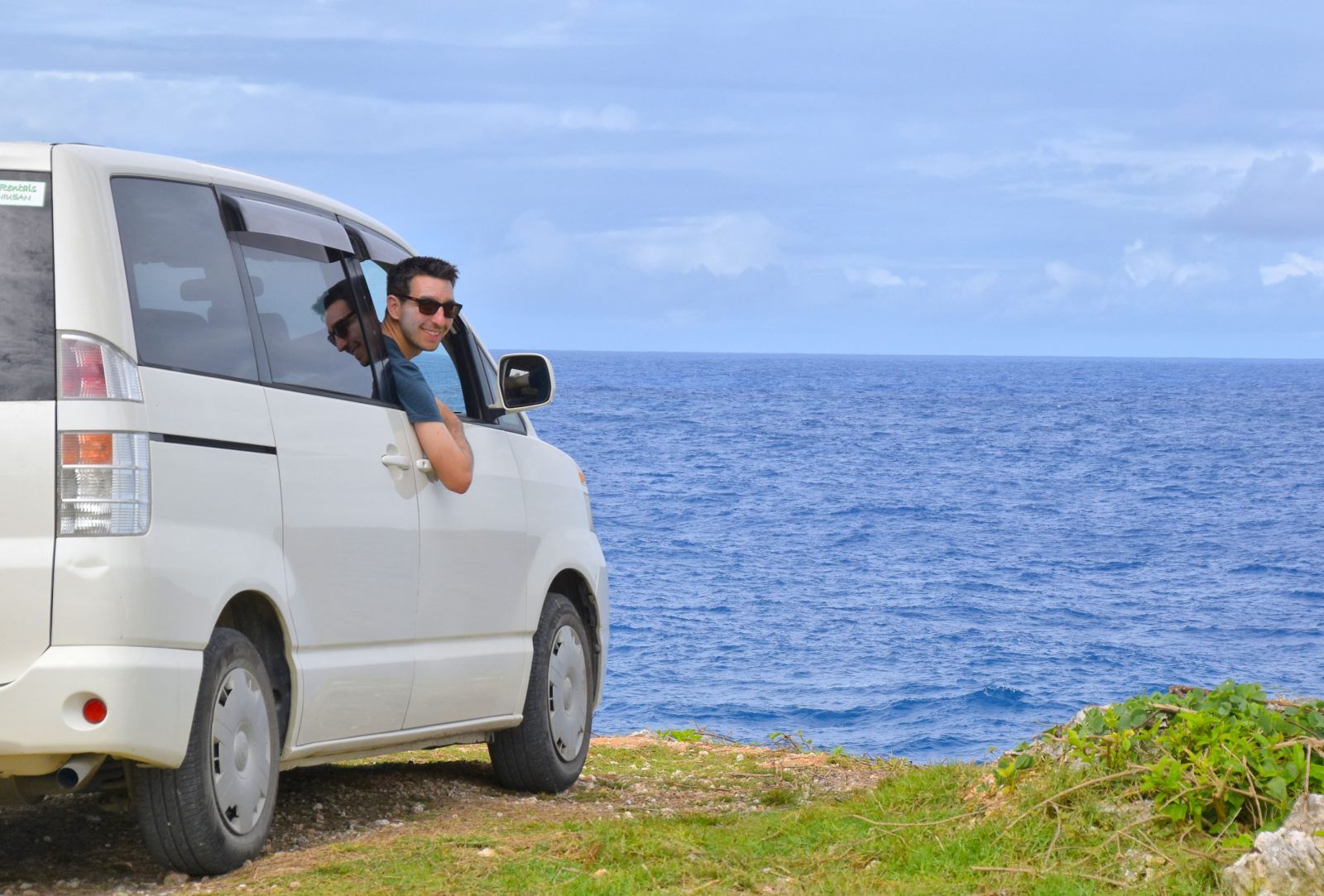

![20 Best Car Rentals in Fiji 🚙 [2025]](https://fijipocketguide.com/wp-content/uploads/2024/09/Uniquely-Coral-Coast-Road-Trip-Rental-CREDIT-Fiji-Pocket-Guide--e1727398043757-900x532.jpg)
![10 Best Car Rentals in Nadi: The Top Nadi Car Rental Companies [2025]](https://fijipocketguide.com/wp-content/uploads/2023/04/Suncoast-Road-Drive-Rental-3-CREDIT-Fiji-Pocket-Guide--e1727206497596-900x645.jpg)

